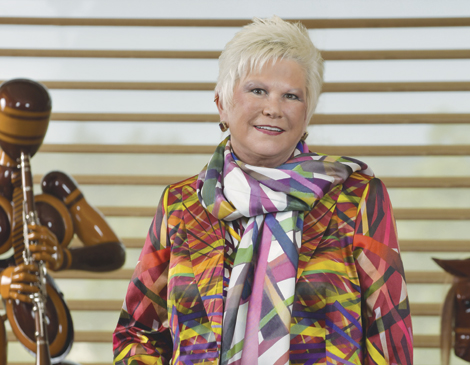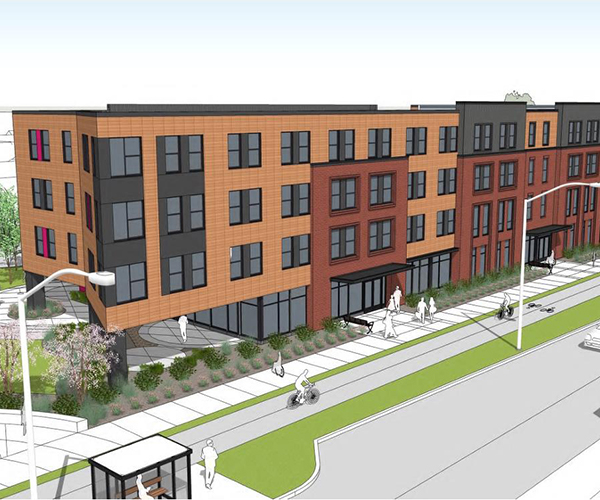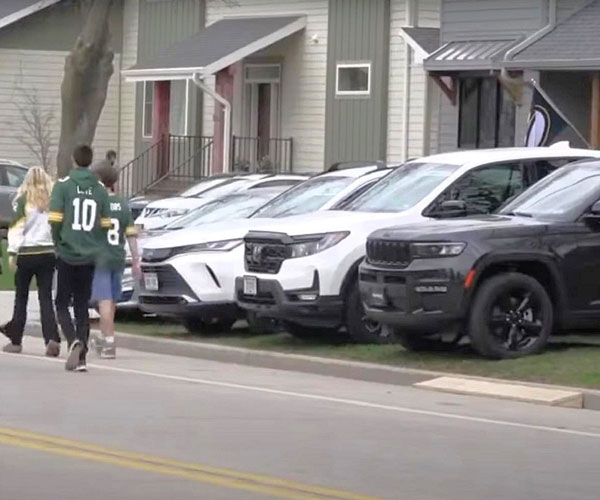In October, Roe Green celebrated her 70th birthday with more than 150 of her closest friends. Guests flew in from California, Washington, Colorado, New York and Florida to celebrate at the Glidden House with their friend and patron. The night even capped off with six-time Tony Award-winner Audra McDonald singing Dr. Seuss’ Happy Birthday To You to the arts advocate and philanthropist.
But as amazing as McDonald was (and she was really quite amazing, Green says), the highlight was seeing so many people she had helped in some way together in one room.
There were representatives from Case Western Reserve University, where she endowed a law library in her father’s name in 2006 and this year pledged an additional $10 million to support the school’s Maltz Performing Arts Center. Kent State University theater students were on hand too — many who had studied with world-famous directors as part of a program Green started in 2004 and continued with another $2.2 million gift this year. Women who had been helped by the 2007 opening of the Green House, a women’s shelter and counseling center in Chardon, attended as well.
“It was so amazing to watch them intersect,” Green recalls. “The chatter in the room was, ‘How do you know Roe? How do you know Roe?’ ”
It was a reminder of the difference that a single person can make. “My philosophy in life is this: I have five oranges, I eat one, save one and give the other three away,” she says. “Every time I give, it comes back tenfold.”
One of the state’s most generous philanthropists and ardent arts supporters, Green is among a handful of donors in Ohio to make a donation of $10 million or more in 2018, according to The Chronicle of Philanthropy.
Green started the Roe Green Foundation and much of her giving in 2003, shortly after her mother Sylvia’s death. Much of the money came from her father, Ben, a federal judge who had invested well.
“He didn’t talk [about giving back],” she says. “He just led by example.”
She tells a story about how her father, who often presided over naturalization ceremonies as a judge, learned about a woman who couldn’t attend the event because she was ill. “My dad went to the hospital and naturalized her there,” she recalls. “That’s the kind of person he was.”
Green grew up in a mixed-religion household. “My mother was Catholic, my father was Jewish,” she says. “But my mother liked the Jewish way of thinking. I went to temple and was confirmed.”
While not particularly religious herself, many of Green’s philosophies harken back to religious tenants about “doing unto others” and the Jewish concept of basheret or “meant to be.”
That’s how her first major gift came about. Domestic violence advocacy group WomenSafe hadn’t been on Green’s radar until she got a call in the ’90s asking if she would buy a coupon book to help support the organization. With a background at various nonprofits, Green told them she wasn’t interested in a book, but asked if they needed volunteers.
Years later when the facility was desperate for a new building, Green was in a financial place to help. “Things present themselves if you’re open to them,” she says. “I don’t go looking for projects.”
That’s one reason why her foundation doesn’t have an official application process. Everything is based on timing, relationships and what she feels personally connected to.
For much of her life, her passion has been channeled through the arts, whether she was a kindergartner reading Goldilocks and the Three Bears to a group of adults or earning her master’s degree in theater from Kent State.
“If too much time goes by without entering a theater, I get withdrawal,” she says. “It’s something my body needs.”
To Green, art also creates one of the best conduits for understanding others. “It allows you to go outside yourself and be something other than you are,” she says. “To me, the arts are what makes us human.”




